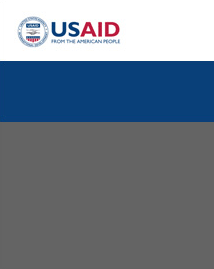Speeches Shim
Following the endorsement of Xpert MTB/RIF (Cepheid, CA, USA) as a diagnostic test for tuberculosis (TB) and rifampicin-resistant TB (RR-TB) by the World Health Organization (WHO) in December 2010, the test was initially introduced at a reduced price of 16.86 USD per cartridge, and 17,000/17,500 USD per 4-module instrument (desktop/laptop), which represented at that time, a reduction of 75 percent and 60 percent, compared to normal market prices, respectively. The reduced prices were made available to the public sector of 145 countries and territories. A stepwise cartridge price reduction scheme was foreseen whereby the cartridge price would gradually decrease dependent on annual cartridge volume sales, starting at 16.86 USD per cartridge for more than 600,000 cartridges and reaching 9.98 USD per cartridge once sales exceed 4.7 million cartridges per year.
In 2012, an immediate reduction of prices was achieved by the U.S. Agency for International Development (USAID), the U.S. Department of State’s Office of the Global AIDS Coordinator (OGAC) , Unitaid/WHO, the Bill & Melinda Gates Foundation (the “buy-down agreement”); which guaranteed a price of 9.98 USD per cartridge immediately and for the following 10 years, instead of waiting for the price to be repeatedly reduced following cartridge procurement volumes. In order to guarantee these even further reduced prices, USAID, OGAC, Unitaid/WHO and the Bill and Melinda Gates Foundation provided a total of 11.1 million USD to the manufacturer Cepheid. Reduced prices were made available for the same, previously determined 145 countries – more specifically for the public sector, including governments and government-funded institutions, non-governmental organizations (NGOs), United Nations organizations, and donors and funding mechanisms supporting eligible countries.
Since the introduction of Xpert MTB/RIF, several important policy and product changes occurred. Initially recommended by WHO to be used for TB and RR-TB detection of risk groups, WHO updated their policy recommendation to use Xpert MTB/RIF for all patients with signs and symptoms of TB (hereafter called the “Xpert4All policy”). In 2017, Cepheid introduced a new Xpert MTB/RIF cartridge version with superior sensitivity to the market (Xpert MTB/RIF Ultra). This is also available at the same concessional price of 9.98 USD per cartridge. Cepheid has also begun the development of cartridges to test for other drug resistance aside from rifampicin.
The buy-down agreement ends in 2022, and this evaluation was conducted to determine impact and implications for the future. This evaluation focuses on coverage of the buy-down agreement, past cartridge and module procurement, and projections of future needs. Access of the private sector as well as service, maintenance, and repair systems and needs have been assessed. Lastly, a review of Xpert impact on clinical outcome measures has been conducted. This evaluation analyzed implications for the future and provides recommendations to inform the development of a future strategy.


Comment
Make a general inquiry or suggest an improvement.